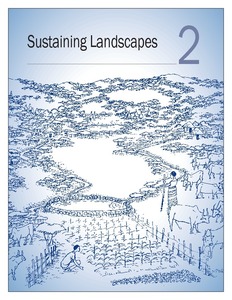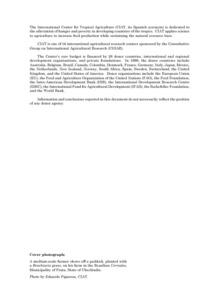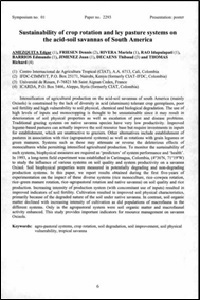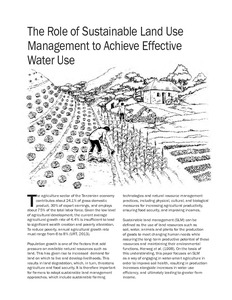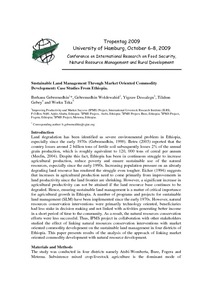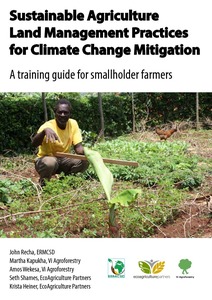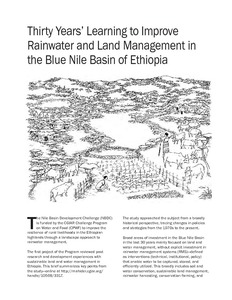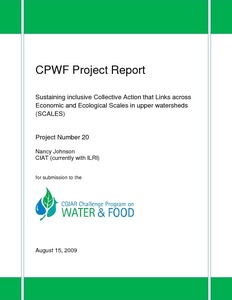Sustainable land management for the oxisols of the Latin American savannas: dynamics of soil organic matter and indicators of soil quality
Sustaining landscapes: The role of sustainable land use management to achieve effective water use
Sustainable land management through market oriented commodity development: Case studies from Ethiopia
Sustainable Agriculture Land Management Practices for Climate Change Mitigation: A training guide for smallholder farmers
The manual was created specifically for use in the Western Kenya Smallholder Agricultural Carbon project, managed by the Swedish NGO Vi Agroforestry, which is the test case for the first Voluntary Carbon Standard (VCS) methodology for generating carbon credits by building organic matter in agricultural soils. The project aims to provide support to farmers as they implement the sustainable agricultural and management (SALM) practices which generate the carbon credits within the project.
Sustaining landscapes: Thirty years’ learning to improve rainwater and land management in the Blue Nile basin of Ethiopia.
Sustainable management of private and communal lands in northern Ethiopia
In this chapter, results of recent research conducted in the northern Ethiopian region of Tigray, which has experienced severe land degradation are synthesized. This paper highlights the technological and institutional factors determining the adoption of natural resource conservation at both the household and the community levels.
Sustainable approaches to degraded land restoration in rural Ethiopia
Sustainable soil and crop management of cassava in Asia: a reference manual
This book is another collaborative effort between CIAT and The Nippon Foundation to review and summarize the results of many years of research on cassava, especially that conducted in Asia by CIAT in collaboration with national programs in the various cassava-growing countries. [...] The main objective was not only to continue the development of new technological options to improve cassava yield while protecting the soil from degradation but also to enhance the adoption of these technologies by cassava farmers.
Sustaining inclusive collective action that links across economic and ecological scales in upper watersheds
The Sustaining inclusive Collective Action that Links across Economic and Ecological Scales in upper watersheds (Scales) project fits mainly in People and Water in Catchments Theme (Theme
2) of the CPWF. Its goal is to contribute to poverty alleviation in the upper watersheds of the
tropics through improved collective action for watershed resource management within and across
social-spatial scales. Scales worked though an integrated program of collaborative action
research, development, and capacity building in key catchments of the Nile and Andes basins, as

